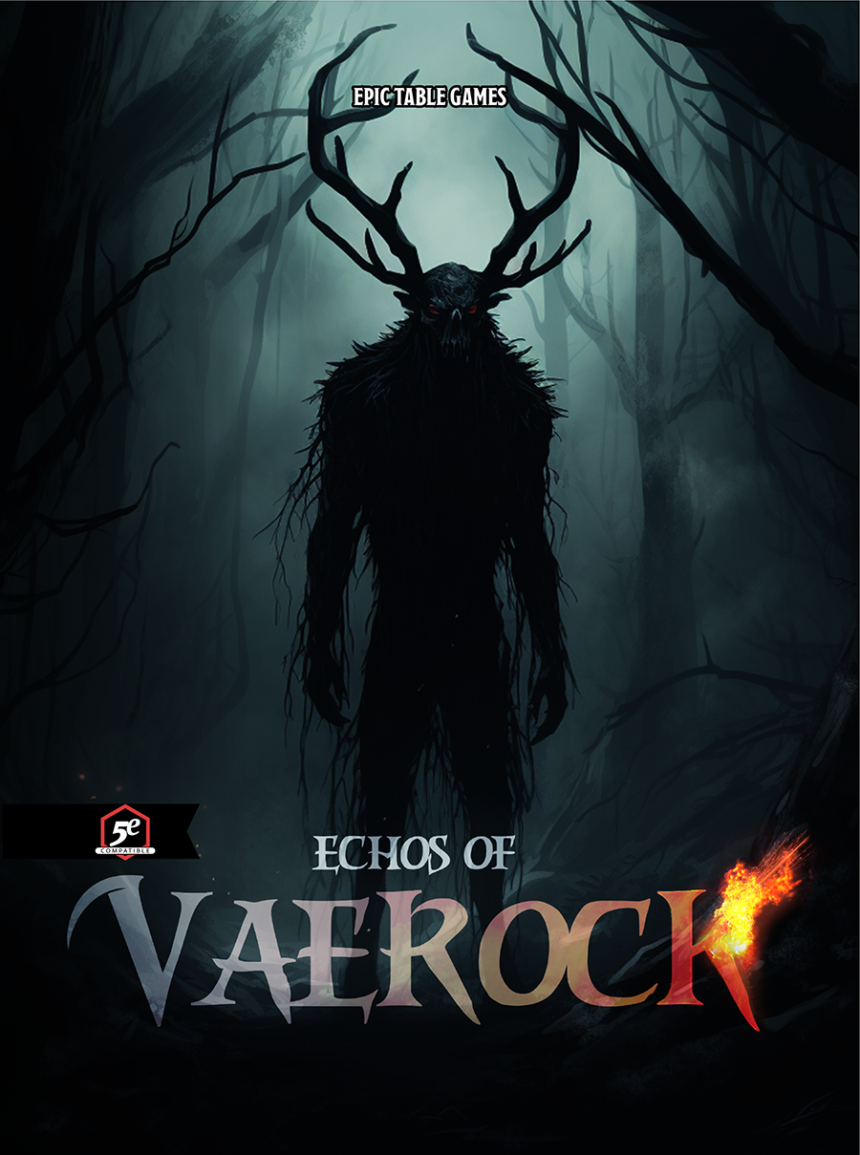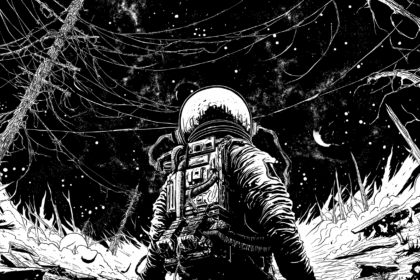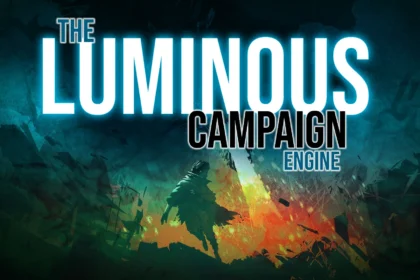I recently had the pleasure of engaging in an email conversation with the team behind the 5e adventure “Inferno,” a captivating campaign setting based on Dante’s “The Divine Comedy.” This remarkable RPG adaptation takes players on a journey into Hell, mirroring Dante’s descent through the Nine Circles, guided by the poet Virgil. What sets “Inferno” apart is its dedication to faithfully translating every aspect of Dante’s Inferno into the game, offering players a truly immersive and philological experience.
In this unique rendition, players assume the roles of Lost Ones, individuals thrust into Hell for various reasons. Their mission: to navigate the treacherous path to the Last Gate, the sole escape from this infernal realm, all while retaining their dwindling Hope. While Lost Ones may hail from diverse worlds and planes, Hell molds them into otherworldly beings, shaped by their virtues and sins.
Inferno is the first original Dantesque Campaign Setting for the 5th Edition of the most important RPG ever created (and played!) which adapt The Divine Comedy, an epic narrative poem widely considered to be the pre-eminent work in Italian literature and one of the greatest piece of world literature, into a tabletop role-playing game. The Inferno original poem is about the Dante’s journey into Hell. Guided by the poet Virgil, Dante descends through the Nine Circles of Hell, eventually arriving at the center where Satan himself resides. Our Inferno is not just a hell-themed Campaign Setting like many others, but a unique and unforgettable experience. We have studied the original poem for years and translated in the game every monster, phenomenon, environmental effect, situation, and peril of Dante’s Inferno, to let the players having a complete, philological experience of the content. In Inferno, players are all Lost Ones, living beings forced to enter Hell for some reason and to complete their voyage to the Last Gate, the only exit, before losing their Hope. They could be from any world or plane, and of course from our Earth, but when entering Hell they will appear as a unique feature, primarily forged by their virtues and sins in an otherworldly look. They are alive and they could stay alive during the whole voyage, like Dante was in his, but the Inferno itself, with its demons, damned souls, and perils will try to catch them and enslave forever them in it. So, the main challenge of the Lost Ones is not to face and defeat the damned and monsters, but to keep their path and their Hope during the voyage. They cannot die there. They cannot be defeated. They cannot lose the way to the last Gate. But they could despair, fail, and be damned forever.
Inferno – Dante’s Guide to Hell is the “Player’s Handbook” and completely focuses on character creation and options, setting rules, and a deep description of the Inferno itself. It could be read by players, and it explains why the PCs are there, who they are, what they could do in hell, and how to leave this supernatural realm.
Inferno – Virgilio’s Untold Tales is our “Game Master’s Guide” + “Monster Manual”, with adventures, perils, game hooks, special equipment, a whole campaign, and the bestiary, together with a deeper description of the Inferno as a sandbox, to be used after the end of the campaign.
There is also a third book in the campaign: Divina Commedia – Inferno is at the same time the complete Artbook of the game and a luxury edition of the Divina Commedia First Canticle. This Inferno Collector’s Edition comes with the original version of the poem, together with the English translation (by Henry Wadsworth Longfellow).
I understand that the theme might not resonate with everyone in the tabletop gaming community, given its unique flavor. It’s a challenge to find content that universally appeals within the hobby. I’m curious to know if the development of “Inferno” was a passion-driven project or if it was a strategic choice based on the iconic story of the Divine Comedy. Could you share some insights into the discussions that surrounded the choice of system for this setting? Did you lean towards using the 5e framework due to its accessibility, or was there consideration for a custom mechanical engine? Given that 5th edition rules can pose challenges for certain themes, did you find the need to introduce new mechanics into the setting to achieve a cohesive experience?
Acheron Games was born as a factory of role-playing game writers and authors, so passion is always the engine that moves us. We are also the only publisher in the world specializing in Fantasy with an Italian setting, so Dante’s Inferno was the perfect combination of passion, art and strategic product choice. All our titles, from Brancalonia to Inferno up to Lex Arcana are in fact based on Italian literature, history and folklore.
As for the choice of game system, we decided to use 5E despite the relative difficulties of fitting our ideas into this system, because it would have allowed us to get the title to a wider audience of players, which effectively it happened. Inferno has raised +400k euros on Kickstarter and is the original Italian setting for 5E with the largest crowdfunding collection in the world. As an indie publisher, reaching the widest possible audience of players also allows us to support “minor” titles, more alternative or simply with independent game systems such as for example Lex Arcana, set in a fantasy version of the Roman Empire and based on the original game Dice Point System. Combining passion, art and the commercial aspect is a very complex balance. At Acheron we always say that all of our publishing house’s decisions should be 51% creative and 49% business based. So the artistic aspect always “wins”, but the commercial choices have a very important weight.
As far as D&D is strictly concerned, we have an excellent 5E “cruncher”, extremely precise and creative at the same time, who perfectly manages to find brilliant solutions to adapt the writers’ ideas into functional, fun and innovative game dynamics.
I also read that “Inferno” was initially kickstarted and released in Italian, with an English translation following a successful campaign. During this creation and translation process, were there instances where certain words or concepts needed to be altered due to nuances in the English language? It’s interesting how languages can sometimes lack direct equivalents for certain ideas.
We always write in Italian and then have our mother tongue professional translators translate into English. We take great care of the English translation precisely for the reasons you mention, namely adherence to the source language. Our texts are extremely accurate (we won, among others, an Ennie Award for “Best Writing” for Brancalonia) and certainly the translation is not easy. “Translating is betraying” is often said. But our translators are half Italian and half English-speaking so they are very successful in the task. Clearly something can get lost, but the result from what we see on the field is excellent.
I’ll give you an example of untranslatable puns, albeit referring to another game (Brancalonia). The world of Brancalonia is nicknamed, by its imaginary inhabitants, “Regno di Taglia” (The Bounty Kingdom), since each inhabitant has a bounty on his head. In Italian, “Regno di Taglia” is a play on words with “Regno d’Italia”, that is the old name of the nation when there was still the monarchy (ie until 1946). The two terms have the exact same pronunciation, and hence the pun. It is clearly impossible to render it in English. But at the same time, the term chosen for the English language (The Bounty Kingdom) has been very successful and is very popular with the role-playing gamers. This is a typical example of an optimal translation, despite having lost an original pun.







